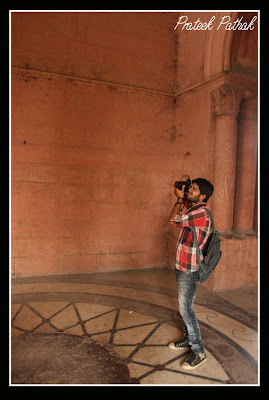The debate in the country over who would, or should, be the next President of India after Pratibha Devi Patil completes her tenure in July is touching the height of temperature. Every political party apart from the major two, the Congress and the BJP, has started communicating its outlooks, and most seem to be swerving around to at least one spot – the new individual for the job should be apolitical, beyond partisan politics, and non-controversial. I might also add cherished, loved, looked up to and possessing an impeccable quality among the qualities. Moreover, it is the newspapers, news channels, or the new media tools every where the hot topic is the next President.
As the analization shows, the two major parties clutch their cards close to their coffers, it might not mean much as neither of them has the figures to sway the result. In a way, that is great, for we know what can be wreaked upon us in circumstances where one party calls the inoculations and has all the figures.
The enlargement is stirring, undoubtedly, and gratitude to the social media, there is intense debate and discussion on what and who the next head of state should be. Among the number of names being thrown around, the name of the former President APJ Abdul Kalam has been the most in strife. Would Kalam making it back as the resident of Rashtrapati Bhavan. It is tuff to figure it now since it is a big prospect in the biggest democracy of the world.
In March I got the golden chance to meet Kalam in a function at Allahabad. (Thanks to Dhananjai Chopra,CC of my centre) When I heard that yet again name of Kalam is at the top position for the President I was pleased. But I have a different outlook on this. On one hand, at least one powerful party may not let that happen. More prominently, howsoever good Kalam was as President, and there is no hesitation that he was effortlessly the most esteemed and non-political chap we have had, I find it very gloomy that we have to even foster opinion of calling him out of retirement to be our President yet again. No, I am not saying Kalam is flabby for the job, for he was a astonishing ambassador of India, but do you see the catastrophe in this? A nation of over a billion people, do we have such a liquidation of human resources, leadership that we cannot find another who is laudable enough to dwell in, the utmost office and possesses the qualities mentioned earlier? It is gloomy, isn’t it?
After this different view one may ask again why not Kalam? I am in no doubt to articulate that from the names in the run Kalam is certainly the best. But folks please try to understand we cannot find another Kalam? If we can find ‘missile-woman’ after ‘missile-man’ we can certainly find an able candidate who can work with the dedication like Kalam. A big example to proof my view is E Sreedharan who had resigned following a key Metro construction accident in July 2009. At that occasion many sections from the media had argued-Should Sreedharan be allowed to go?. Since Sreedharan knew how the system works and has always delivered and given that the Commonwealth Games were round the corner, we needed him there to supervise the work. But other than that, it again pointed to our liquidation that we had to depend so deeply on a personality and couldn't find someone precious enough to swap him.
For a country that frequently desires to be among the world superpowers, provide me a favor to understand the nation is only as good as its human assets. It may sound too rounded, but the verity remains that we have a lot of workers and no leaders. Lack of suitable leadership and leaders would foil every endeavor or hallucination of turning out a nation that the world looks up to.
I might be wrong with this different point of view and would not be surprised when I will see visuals of Kalam entering as the resident of Rashtrapati Bhavan. Lastly certainly I could be criticized but one thing is very clear i.e. why cannot we produce a leader like Obama?




Prateek Pathak
Student
B.A in Media Studies
University of ALlahabad















.jpg)












